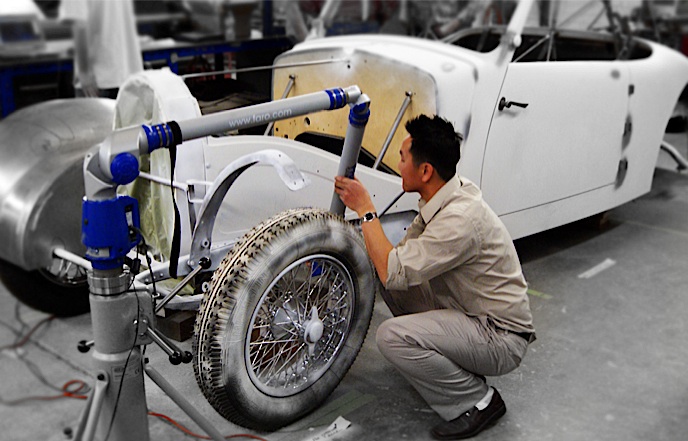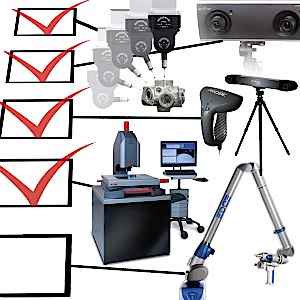
If you need reverse engineering for your business, you may come to a point when you must decide if you want to outsource to a qualified provider or purchase equipment to do the job in-house.
Both approaches come with advantages and disadvantages. Ask the following questions to help you make an informed decision:
- How frequently do you need to perform reverse engineering? If the answer is not that often or for a short-term project, you might consider outsourcing as a more cost-effective solution. On the other hand, if you foresee a consistent need for reverse engineering, buying or leasing equipment might be a better approach.
- How quickly do you need results? If the answer is yesterday, outsourcing is likely to be faster than purchasing new equipment and training staff to use it. If you think buying is a better solution, factor in the time needed to acquire equipment and train your staff.
- How much can you spend? Working backward from a set budget is a good way to evaluate your options. Remember to factor in more than just equipment costs. You might also need to train staff and pay for maintenance, so the up-front expenses do not necessarily reflect the total cost of ownership. On the other hand, if you will need reverse engineering services for the long run, owning your equipment could cost less over time.
- What types of objects do you need to reverse engineer? If you expect to scan multiple objects with different sizes and surface characteristics, you might actually need more than one piece of equipment to get the job done. Outsourcing to a provider that has multiple devices can save you time and money. However, if you know you'll be reverse engineering similar objects, doing it in-house could be more efficient.
- Does your staff know how to reverse engineer? Just because employees are skilled in one area does not mean that they will have the necessary knowledge and skills to use new equipment that they are not familiar with. If you do decide to buy, consider investing in training.
- Is NIST traceability important? If you require NIST traceability, ensuring that the personnel operating the equipment have the necessary skills becomes even more important. A qualified provider can ensure NIST traceability, or you can train staff so you can achieve it in-house.
- Can you handle tech support and maintenance in-house? Owning equipment means that you are responsible for calibrating, operating, and maintaining it. If you’re not prepared to do this for the life of the equipment, consider outsourcing. Some equipment resellers also provide ongoing training, support, and maintenance, so if you do buy, look for a provider that offers these services.
One approach that many businesses take is outsourcing before they decide to make an equipment purchase. This way, you can ensure that the equipment you are considering is adequate for the task at hand. You will also have time to hire skilled staff or train your existing employees to use the new equipment.
Whether you buy or outsource, Q-PLUS Labs is here to help. As a reseller of multiple types of equipment, we offer a large selection of manufacturers. Because we use this equipment in our own labs, we are uniquely qualified to help you make the best selection for your specific needs.
If you’re not yet ready to buy, we can perform the reverse engineering for you, either for a single project or on a long-term basis. Get in touch with a representative today to start exploring your reverse engineering options.




 Purchasing dimensional inspection equipment requires making a big decision, and in most cases a significant financial investment. It is important to be certain that the equipment you buy will serve its intended purpose and provide the results you need.
Purchasing dimensional inspection equipment requires making a big decision, and in most cases a significant financial investment. It is important to be certain that the equipment you buy will serve its intended purpose and provide the results you need.

